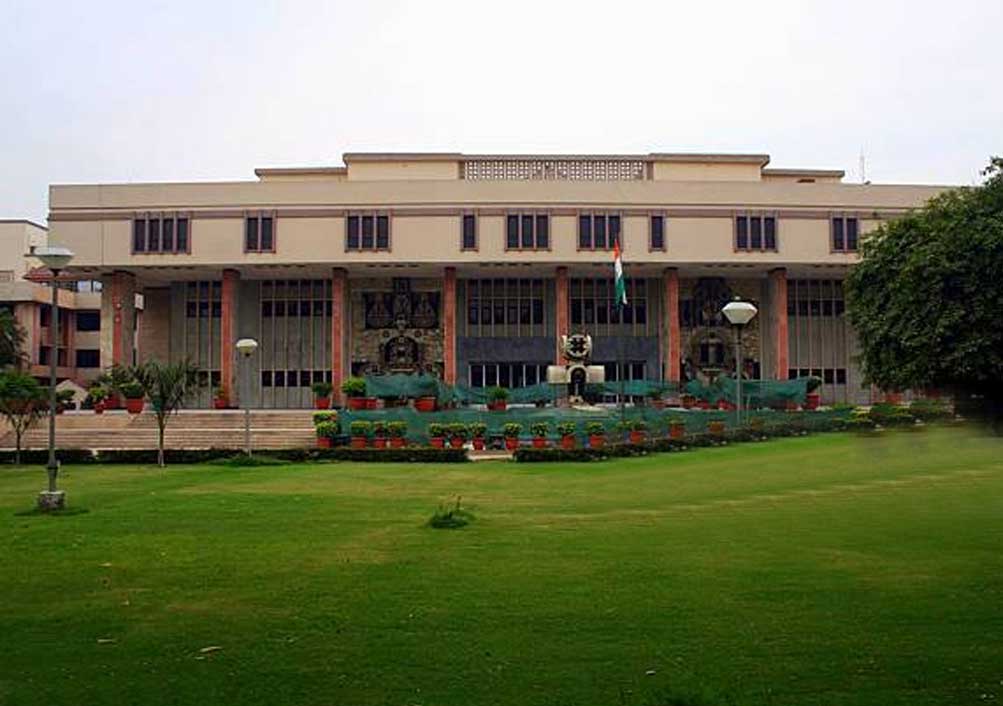In W.P.(CRL) 1210/2023 -DEL HC- Direction under Section 156(3) of CrPC is to be issued only after application of mind by Magistrate: Delhi High Court
Justice Rajnish Bhatnagar [29-11-2023]

Read Order: Anjuri Kumari V. The State Govt. of NCT of Delhi & Ors
LE Correspondent
New Delhi, December 15, 2023: The Delhi High Court has recently ruled that the directions for investigation under Section 156(3) of the Code of Criminal Procedure (Cr.P.C.) cannot be given by the Magistrate mechanically. The Court emphasized that such a direction can only be issued when the Magistrate applies their mind to the matter.
In the said case, the petitioner had filed an application under Section 156(3) of Cr.P.C, seeking the registration of an FIR and investigation of the case. The petitioner alleged that he had given a written complaint to the SHO against the accused persons, respondent no. 1 to 3, and further provided a written complaint to the DCP, stating that he had come in contact with respondent no. 1 during the lockdown as they were neighbours. It was claimed that the respondent no. 1, along with respondent no. 2 and respondent no. 3, proposed to start a core binding business. Believing the accused persons, the petitioner invested an amount of Rs.2,20,000 in instalments. However, the respondent no. 1 stopped coming to his shop, refused to provide the machine, stopped answering his phone calls, and ceased replying to his messages.
Subsequently, the petitioner moved an application under Section 156(3) Cr.P.C before the court of the Metropolitan Magistrate. But the said application was dismissed via the impugned order dated 14.09.2022. Subsequently, the petitioner challenged the order dated 14.09.2022, by filing a revision petition before the Court of Sessions. However, the Session Judge, vide an order dated 11.01.2023, upheld the order passed by the Metropolitan Magistrate and dismissed the revision petition.
The single-judge bench of Justice Rajnish Bhatnagar observed that the Magistrate, after an inquiry, declined the petitioner's plea for police investigation under Section 156(3) of the Cr.P.C. The Magistrate based this decision on various grounds, including the ascertained identity of proposed accused persons, the absence of additional facts requiring discovery, the lack of necessity for custodial interrogation, the accessibility of evidence to the complainant, and the case not warranting a detailed investigation by a State Agency.
The bench referred to Shri Subhkaran Luharuka & Anr. vs. State & Anr [LQ/DelHC/2010/2317], emphasizing the prerequisites for a complainant before approaching the Magistrate under Section 156(3) of the Code. This provision is discretionary, and the magistrate should exercise judgment, passing orders only if satisfied that the information indicates cognizable offenses and necessitates police investigation for obtaining evidence beyond the complainant's reach.
The bench said,” I am of the view that the directions for investigation under section 156 (3) of the Code cannot be given by the Magistrate mechanically. Such a direction can be given only on application of mind by the Magistrate.”
The bench held that the Magistrate is not bound to direct a police investigation, even if the complaint alleged a cognizable offense. The decision depends on the specific facts and circumstances of each case. The Magistrate has the discretion to determine whether the complainant could establish the facts without police assistance. In such instances, the Magistrate could proceed under Section 200 of the Code, examining witnesses presented by the complainant. However, if the evidence necessitated police involvement for collection, the Magistrate is supposed to direct a police investigation.
In the case mentioned, the bench noted that all relevant facts and evidence were within the petitioner's knowledge, and thus, the inquiry could be conducted by the Metropolitan Magistrate under Section 200 of the Code without requiring a police investigation.
In light of these facts and circumstances, the Court did not identify any palpable absurdity or perversity in the impugned order that necessitated correction or rectification by the court using its inherent jurisdiction under Section 482 of the Cr.P.C.
Consequently, the Court dismissed the petition.
Sign up for our weekly newsletter to stay up to date on our product, events featured blog, special offer and all of the exciting things that take place here at Legitquest.




Add a Comment